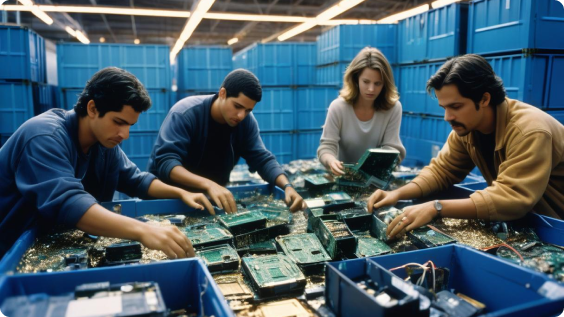E-Waste Management
Toll-Free Number 18003099943
Electronic waste, or e-waste, is a term for electronic products that have become unwanted, non-working, or obsolete, and have essentially reached the end of their useful life. As per E-waste Rule 2016, E-waste is defined as ‘electrical and electronic equipment, whole or in part discarded as waste by the consumer or bulk consumer as well as rejects from manufacturing, refurbishment and repair processes.
E-waste contains many valuable, recoverable materials such as aluminium, copper, gold, silver, plastics, and ferrous metals. In order to conserve natural resources and the energy needed to produce new electronic equipment from virgin resources, electronic equipment can be refurbished, reused, and recycled instead of being land-filled.
E-waste also contains toxic and hazardous materials including mercury, lead, cadmium, beryllium, chromium, and chemical flame retardants, which have the potential to leach into our soil and water.
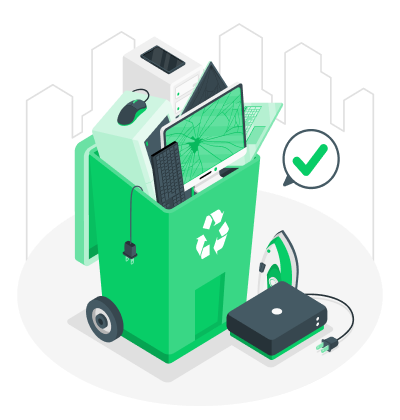
Do's & Don'ts
Follow these essential guidelines for responsible e-waste disposal to ensure safety, sustainability, and compliance with regulations.
Always look for information in the catalog with your product for end-of-life equipment handling.
Ensure that only Authorized Recyclers/Dismantler handle your electronic products
Always call our toll-free No's to dispose of products that have reached end-of-life
Always drop your used electronic products, batteries, or any accessories when they reach the end of their life at your nearest Authorized E-Waste Collection Points.
Always disconnect the battery from the product, and ensure any glass surface is protected against breakage.
Do not dismantle your electronic Products on your own
Do not throw electronics in bins having a "Do not Dispose" sign.
Do not give e-waste to informal and unorganized sectors like Local Scrap Dealer/ Rag Pickers.
Do not dispose of your product in garbage bins along with municipal waste that ultimately reaches landfills.
Electronics Recycling Conserves Natural Resources
There are many materials that can be recovered from old electronics. These materials can be used to make new products, thus reducing the need to mine for new raw materials. For instance, various metals can be recovered from computer circuit boards and other electronics, and the plastics and glass found in computer monitors and televisions can be recycled.
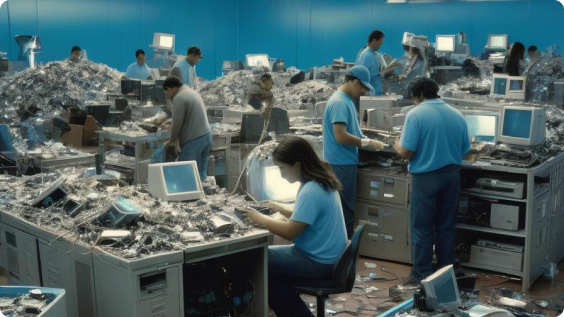
Electronics Recycling Supports The Community
Donating your old electronics plays an important role in the provision of refurbished products such as computers and mobile phones, which can be of great help to low-income families, schools, and not-for-profit organizations. It also helps individuals gain access to technology that they could not have otherwise afforded.
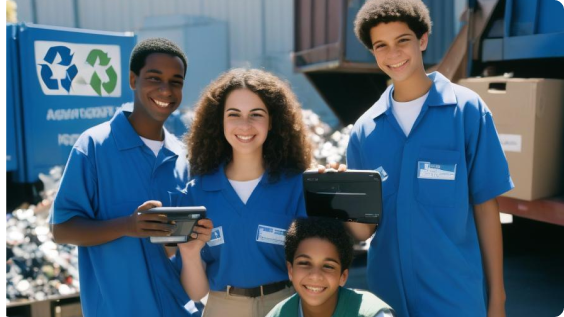
Electronics Recycling Creates Employment Locally
Considering that around 90 percent of electronic equipment is recyclable, electronics recycling can play a significant role in creating employment. This is because new firms dealing with electronics recycling will form and existing firms will look to employ more people to recover recyclable materials. This can be triggered by the increase in the demand for electronics recycling.
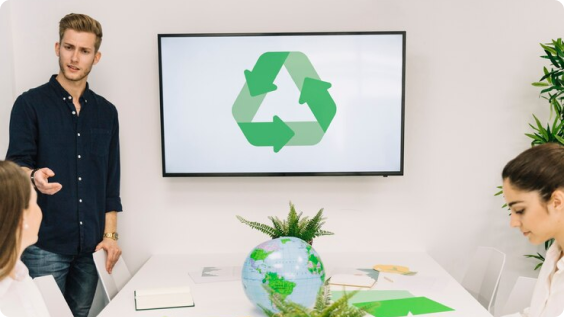
Collection Mechanism Of E-Waste
Buyback Scheme: Customers can discard old products by calling the toll-free number 1800-300-9943 for pickup or dropping them at a collection point. In return, they receive vouchers for new products. E-waste is managed by Recycle Waste Management with logistic support. The scheme is regularly updated based on feedback.
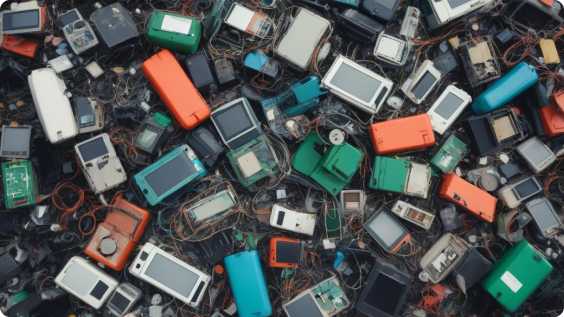
Recycling Of E-Waste
E-Waste Disposal: The Company partners with Recycle Waste Management for PAN-India e-waste collection and recycling at their plant in Budaun, Uttar Pradesh. Customers can call 1800-300-9943 to learn about drop-off locations, incentives, or request doorstep pickup. Collected e-waste is processed for final processing.
